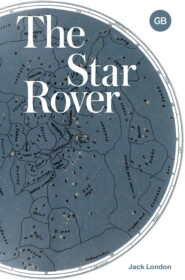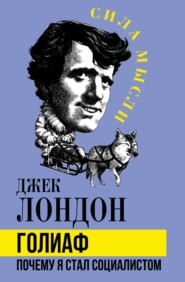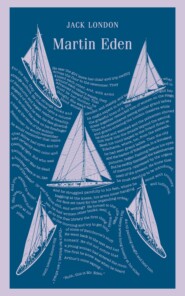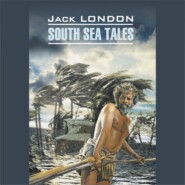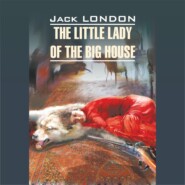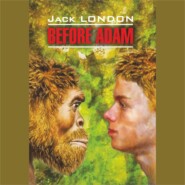По всем вопросам обращайтесь на: info@litportal.ru
(©) 2003-2025.
✖
The Little Lady of the Big House
Настройки чтения
Размер шрифта
Высота строк
Поля
“Where’s my Boy in Breeches?” he shouted, as he stamped out under the porte cochère just as a ranch limousine swung around the curve among the lilacs.
“I’ll be hanged if I know,” a tall, blond man in a light summer suit responded from the car; and the next moment Dick Forrest and Evan Graham were shaking hands.
Oh My and Oh Ho carried in the hand baggage, and Dick accompanied his guest to the watch tower quarters.
“You’ll have to get used to us, old man,” Dick was explaining. “We run the ranch like clockwork, and the servants are wonders; but we allow ourselves all sorts of loosenesses. If you’d arrived two minutes later there’d have been no one to welcome you but the Chinese boys. I was just going for a ride, and Paula – Mrs. Forrest – has disappeared.”
The two men were almost of a size, Graham topping his host by perhaps an inch, but losing that inch in the comparative breadth of shoulders and depth of chest. Graham was, if anything, a clearer blond than Forrest, although both were equally gray of eye, equally clear in the whites of the eyes, and equally and precisely similarly bronzed by sun and weather-beat. Graham’s features were in a slightly larger mold; his eyes were a trifle longer, although this was lost again by a heavier droop of lids. His nose hinted that it was a shade straighter as well as larger than Dick’s, and his lips were a shade thicker, a shade redder, a shade more bowed with fulsome-ness.
Forrest’s hair was light brown to chestnut, while Graham’s carried a whispering advertisement that it would have been almost golden in its silk had it not been burned almost to sandiness by the sun. The cheeks of both were high-boned, although the hollows under Forrest’s cheek-bones were more pronounced. Both noses were large-nostriled and sensitive. And both mouths, while generously proportioned, carried the impression of girlish sweetness and chastity along with the muscles that could draw the lips to the firmness and harshness that would not give the lie to the square, uncleft chins beneath.
But the inch more in height and the inch less in chest-girth gave Evan Graham a grace of body and carriage that Dick Forrest did not possess. In this particular of build, each served well as a foil to the other. Graham was all light and delight, with a hint – but the slightest of hints – of Prince Charming. Forrest’s seemed a more efficient and formidable organism, more dangerous to other life, stouter-gripped on its own life.
Forrest threw a glance at his wrist watch as he talked, but in that glance, without pause or fumble of focus, with swift certainty of correlation, he read the dial.
“Eleven-thirty,” he said. “Come along at once, Graham. We don’t eat till twelve-thirty. I am sending out a shipment of bulls, three hundred of them, and I’m downright proud of them. You simply must see them. Never mind your riding togs. Oh Ho – fetch a pair of my leggings. You, Oh Joy, order Altadena saddled. – What saddle do you prefer, Graham?”
“Oh, anything, old man.”
“English? – Australian? – McClellan? – Mexican?” Dick insisted.
“McClellan, if it’s no trouble,” Graham surrendered.
They sat their horses by the side of the road and watched the last of the herd beginning its long journey to Chili disappear around the bend.
“I see what you’re doing – it’s great,” Graham said with sparkling eyes. “I’ve fooled some myself with the critters, when I was a youngster, down in the Argentine. If I’d had beef-blood like that to build on, I mightn’t have taken the cropper I did.”
“But that was before alfalfa and artesian wells,” Dick smoothed for him. “The time wasn’t ripe for the Shorthorn. Only scrubs could survive the droughts. They were strong in staying powers but light on the scales. And refrigerator steamships hadn’t been invented. That’s what revolutionized the game down there.”
“Besides, I was a mere youngster,” Graham added. “Though that meant nothing much. There was a young German tackled it at the same time I did, with a tenth of my capital. He hung it out, lean years, dry years, and all. He’s rated in seven figures now.”
They turned their horses back for the Big House. Dick flirted his wrist to see his watch.
“Lots of time,” he assured his guest. “I’m glad you saw those yearlings. There was one reason why that young German stuck it out. He had to. You had your father’s money to fall back on, and, I imagine not only that your feet itched, but that your chief weakness lay in that you could afford to solace the itching.”
“Over there are the fish ponds,” Dick said, indicating with a nod of his head to the right an invisible area beyond the lilacs. “You’ll have plenty of opportunity to catch a mess of trout, or bass, or even catfish. You see, I’m a miser. I love to make things work. There may be a justification for the eight-hour labor day, but I make the work-day of water just twenty-four hours’ long. The ponds are in series, according to the nature of the fish. But the water starts working up in the mountains. It irrigates a score of mountain meadows before it makes the plunge and is clarified to crystal clearness in the next few rugged miles; and at the plunge from the highlands it generates half the power and all the lighting used on the ranch. Then it sub-irrigates lower levels, flows in here to the fish ponds, and runs out and irrigates miles of alfalfa farther on. And, believe me, if by that time it hadn’t reached the flat of the Sacramento, I’d be pumping out the drainage for more irrigation.”
“Man, man,” Graham laughed, “you could make a poem on the wonder of water. I’ve met fire-worshipers, but you’re the first real water-worshiper I’ve ever encountered. And you’re no desert-dweller, either. You live in a land of water – pardon the bull – but, as I was saying…”
Graham never completed his thought. From the right, not far away, came the unmistakable ring of shod hoofs on concrete, followed by a mighty splash and an outburst of women’s cries and laughter. Quickly the cries turned to alarm, accompanied by the sounds of a prodigious splashing and floundering as of some huge, drowning beast. Dick bent his head and leaped his horse through the lilacs, Graham, on Altadena, followed at his heels. They emerged in a blaze of sunshine, on an open space among the trees, and Graham came upon as unexpected a picture as he had ever chanced upon in his life.
Tree-surrounded, the heart of the open space was a tank, four-sided of concrete. The upper end of the tank, full width, was a broad spillway, sheened with an inch of smooth-slipping water. The sides were perpendicular. The lower end, roughly corrugated, sloped out gently to solid footing. Here, in distress that was consternation, and in fear that was panic, excitedly bobbed up and down a cowboy in bearskin chaps, vacuously repeating the exclamation, “Oh God! Oh God!" – the first division of it rising in inflection, the second division inflected fallingly with despair. On the edge of the farther side, facing him, in bathing suits, legs dangling toward the water, sat three terrified nymphs.
And in the tank, the center of the picture, a great horse, bright bay and wet and ruddy satin, vertical in the water, struck upward and outward into the free air with huge fore-hoofs steel-gleaming in the wet and sun, while on its back, slipping and clinging, was the white form of what Graham took at first to be some glorious youth. Not until the stallion, sinking, emerged again by means of the powerful beat of his legs and hoofs, did Graham realize that it was a woman who rode him – a woman as white as the white silken slip of a bathing suit that molded to her form like a marble-carven veiling of drapery. As marble was her back, save that the fine delicate muscles moved and crept under the silken suit as she strove to keep her head above water. Her slim round arms were twined in yards of half-drowned stallion-mane, while her white round knees slipped on the sleek, wet, satin pads of the great horse’s straining shoulder muscles. The white toes of her dug for a grip into the smooth sides of the animal, vainly seeking a hold on the ribs beneath.
In a breath, or the half of a breath, Graham saw the whole breathless situation, realized that the white wonderful creature was a woman, and sensed the smallness and daintiness of her despite her gladiatorial struggles. She reminded him of some Dresden china figure set absurdly small and light and strangely on the drowning back of a titanic beast. So dwarfed was she by the bulk of the stallion that she was a midget, or a tiny fairy from fairyland come true.
As she pressed her cheek against the great arching neck, her golden-brown hair, wet from being under, flowing and tangled, seemed tangled in the black mane of the stallion. But it was her face that smote Graham most of all. It was a boy’s face; it was a woman’s face; it was serious and at the same time amused, expressing the pleasure it found woven with the peril. It was a white woman’s face – and modern; and yet, to Graham, it was all-pagan. This was not a creature and a situation one happened upon in the twentieth century. It was straight out of old Greece. It was a Maxfield Parrish reminiscence from the Arabian Nights. Genii might be expected to rise from those troubled depths, or golden princes, astride winged dragons, to swoop down out of the blue to the rescue.
The stallion, forcing itself higher out of water, missed, by a shade, from turning over backward as it sank. Glorious animal and glorious rider disappeared together beneath the surface, to rise together, a second later, the stallion still pawing the air with fore-hoofs the size of dinner plates, the rider still clinging to the sleek, satin-coated muscles. Graham thought, with a gasp, what might have happened had the stallion turned over. A chance blow from any one of those four enormous floundering hoofs could have put out and quenched forever the light and sparkle of that superb, white-bodied, fire-animated woman.
“Ride his neck!” Dick shouted. “Catch his foretop and get on his neck till he balances out!”
The woman obeyed, digging her toes into the evasive muscle-pads for the quick effort, and leaping upward, one hand twined in the wet mane, the other hand free and up-stretched, darting between the ears and clutching the foretop. The next moment, as the stallion balanced out horizontally in obedience to her shiftage of weight, she had slipped back to the shoulders. Holding with one hand to the mane, she waved a white arm in the air and flashed a smile of acknowledgment to Forrest; and, as Graham noted, she was cool enough to note him on his horse beside Forrest. Also, Graham realized that the turning of her head and the waving of her arm was only partly in bravado, was more in aesthetic wisdom of the picture she composed, and was, most of all, sheer joy of daring and emprise of the blood and the flesh and the life that was she.
“Not many women’d tackle that,” Dick said quietly, as Mountain Lad, easily retaining his horizontal position once it had been attained, swam to the lower end of the tank and floundered up the rough slope to the anxious cowboy.
The latter swiftly adjusted the halter with a turn of chain between the jaws. But Paula, still astride, leaned forward, imperiously took the lead-part from the cowboy, whirled Mountain Lad around to face Forrest, and saluted.
“Now you will have to go away,” she called. “This is our hen party, and the stag public is not admitted.”
Dick laughed, saluted acknowledgment, and led the way back through the lilacs to the road.
“Who … who was it?” Graham queried.
“Paula – Mrs. Forrest – the boy girl, the child that never grew up, the grittiest puff of rose-dust that was ever woman.”
“My breath is quite taken away,” Graham said. “Do your people do such stunts frequently?”
“First time she ever did that,” Forrest replied. “That was Mountain Lad. She rode him straight down the spill-way – tobogganed with him, twenty-two hundred and forty pounds of him.”
“Risked his neck and legs as well as her own,” was Graham’s comment.
“Thirty-five thousand dollars’ worth of neck and legs,” Dick smiled. “That’s what a pool of breeders offered me for him last year after he’d cleaned up the Coast with his get as well as himself. And as for Paula, she could break necks and legs at that price every day in the year until I went broke – only she doesn’t. She never has accidents.”
“I wouldn’t have given tuppence for her chance if he’d turned over.”
“But he didn’t,” Dick answered placidly. “That’s Paula’s luck. She’s tough to kill. Why, I’ve had her under shell-fire where she was actually disappointed because she didn’t get hit, or killed, or near-killed. Four batteries opened on us, shrapnel, at mile-range, and we had to cover half a mile of smooth hill-brow for shelter. I really felt I was justified in charging her with holding back. She did admit a ‘trifle.’ We’ve been married ten or a dozen years now, and, d’ye know, sometimes it seems to me I don’t know her at all, and that nobody knows her, and that she doesn’t know herself – just the same way as you and I can look at ourselves in a mirror and wonder who the devil we are anyway. Paula and I have one magic formula: Damn the expense when fun is selling. And it doesn’t matter whether the price is in dollars, hide, or life. It’s our way and our luck. It works. And, d’ye know, we’ve never been gouged on the price yet.”
Chapter X
It was a stag lunch. As Forrest explained, the girls were “hen-partying.”
“I doubt you’ll see a soul of them till four o’clock, when Ernestine, that’s one of Paula’s sisters, is going to wallop me at tennis – at least so she’s threatened and pledged.”
And Graham sat through the lunch, where only men sat, took his part in the conversation on breeds and breeding, learned much, contributed a mite from his own world-experiences, and was unable to shake from his eyes the persistent image of his hostess, the vision of the rounded and delicate white of her against the dark wet background of the swimming stallion. And all the afternoon, looking over prize Merinos and Berkshire gilts, continually that vision burned up under his eyelids. Even at four, in the tennis court, himself playing against Ernestine, he missed more than one stroke because the image of the flying ball would suddenly be eclipsed by the image of a white marble figure of a woman that strove and clung on the back of a great horse.
Graham, although an outlander, knew his California, and, while every girl of the swimming suits was gowned for dinner, was not surprised to find no man similarly accoutered. Nor had he made the mistake of so being himself, despite the Big House and the magnificent scale on which it operated.
Between the first and second gongs, all the guests drifted into the long dining room. Sharp after the second gong, Dick Forrest arrived and precipitated cocktails. And Graham impatiently waited the appearance of the woman who had worried his eyes since noon. He was prepared for all manner of disappointment. Too many gorgeous stripped athletes had he seen slouched into conventional garmenting, to expect too much of the marvelous creature in the white silken swimming suit when it should appear garbed as civilized women garb.
He caught his breath with an imperceptible gasp when she entered. She paused, naturally, for just the right flash of an instant in the arched doorway, limned against the darkness behind her, the soft glow of the indirect lighting full upon her. Graham’s lips gasped apart, and remained apart, his eyes ravished with the beauty and surprise of her he had deemed so small, so fairy-like. Here was no delicate midget of a child-woman or boy-girl on a stallion, but a grand lady, as only a small woman can be grand on occasion.
Taller in truth was she, as well as in seeming, than he had judged her, and as finely proportioned in her gown as in her swimming suit. He noted her shining gold-brown hair piled high; the healthy tinge of her skin that was clean and clear and white; the singing throat, full and round, incomparably set on a healthy chest; and the gown, dull blue, a sort of medieval thing with half-fitting, half-clinging body, with flowing sleeves and trimmings of gold-jeweled bands.
She smiled an embracing salutation and greeting. Graham recognized it as kin to the one he had seen when she smiled from the back of the stallion. When she started forward, he could not fail to see the inimitable way she carried the cling and weight of her draperies with her knees – round knees, he knew, that he had seen press desperately into the round muscle-pads of Mountain Lad. Graham observed, also, that she neither wore nor needed corseting. Nor could he fail, as she crossed the floor, to see two women: one, the grand lady, the mistress of the Big House; one, the lovely equestrienne statue beneath the dull-blue, golden-trimmed gown, that no gowning could ever make his memory forget.
She was upon them, among them, and Graham’s hand held hers in the formal introduction as he was made welcome to the Big House and all the hacienda in a voice that he knew was a singing voice and that could proceed only from a throat that pillared, such as hers, from a chest deep as hers despite her smallness.






